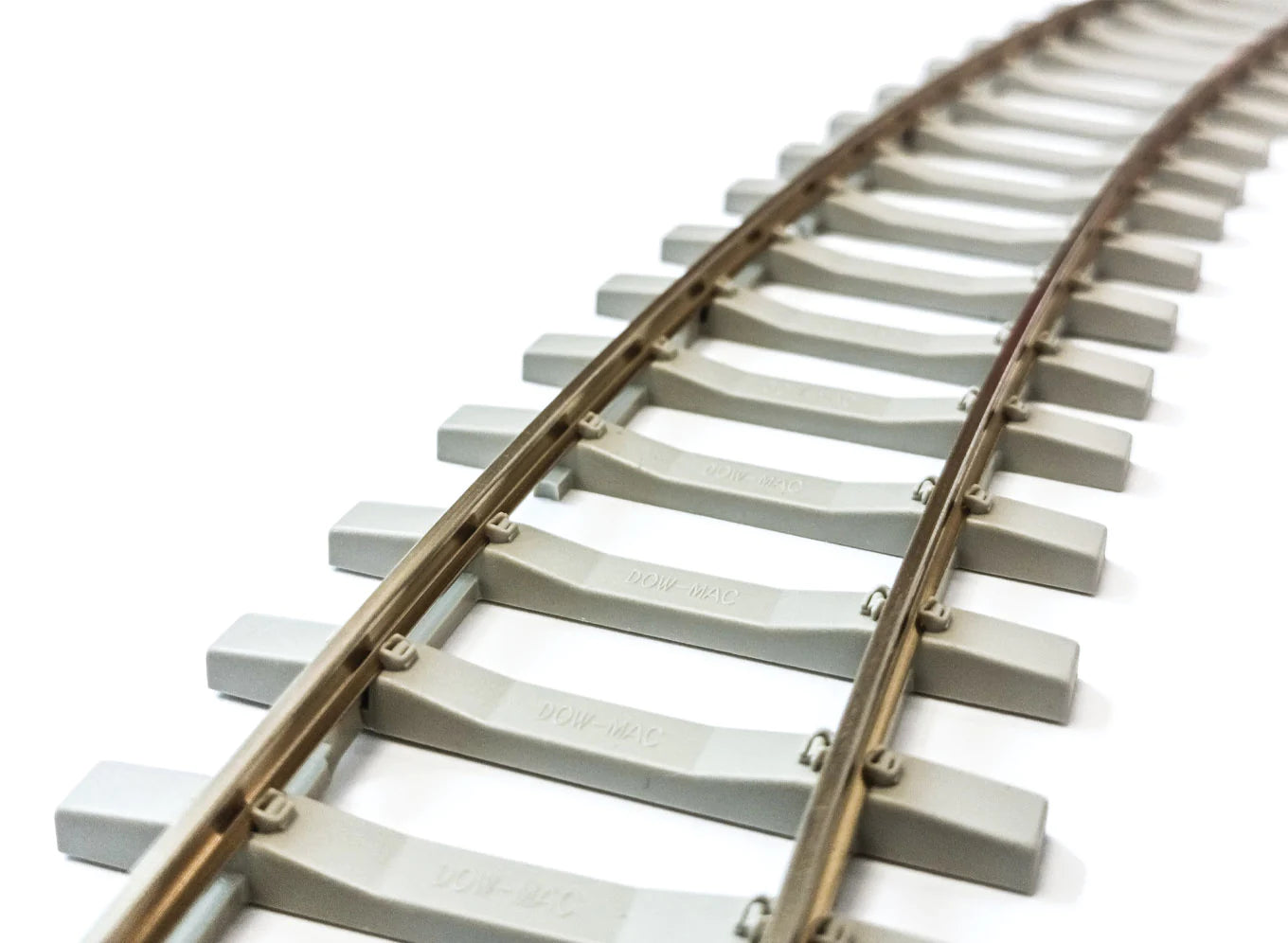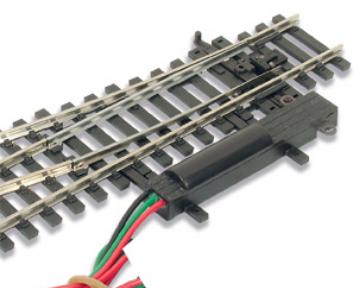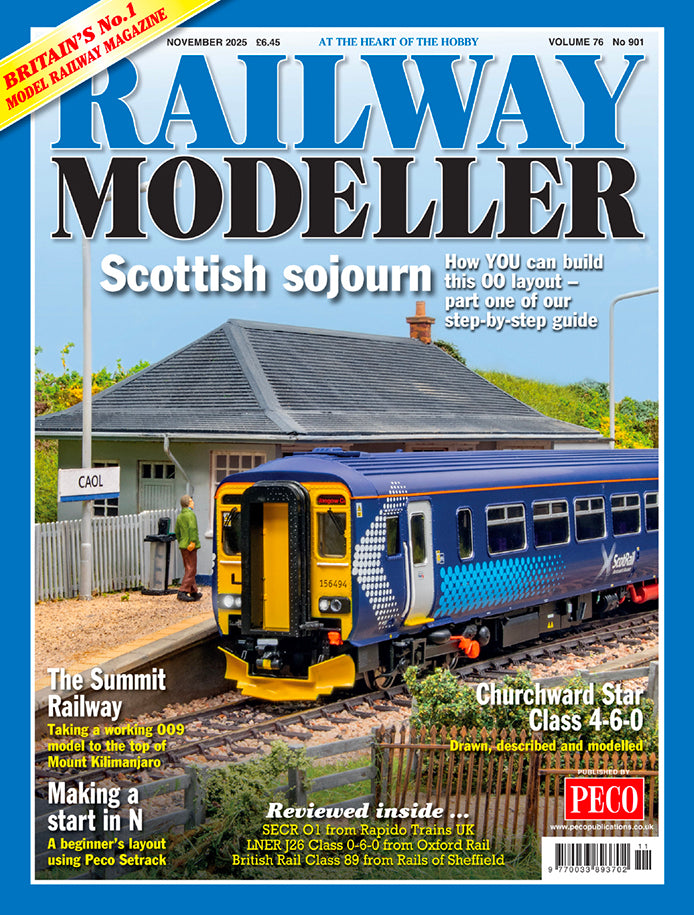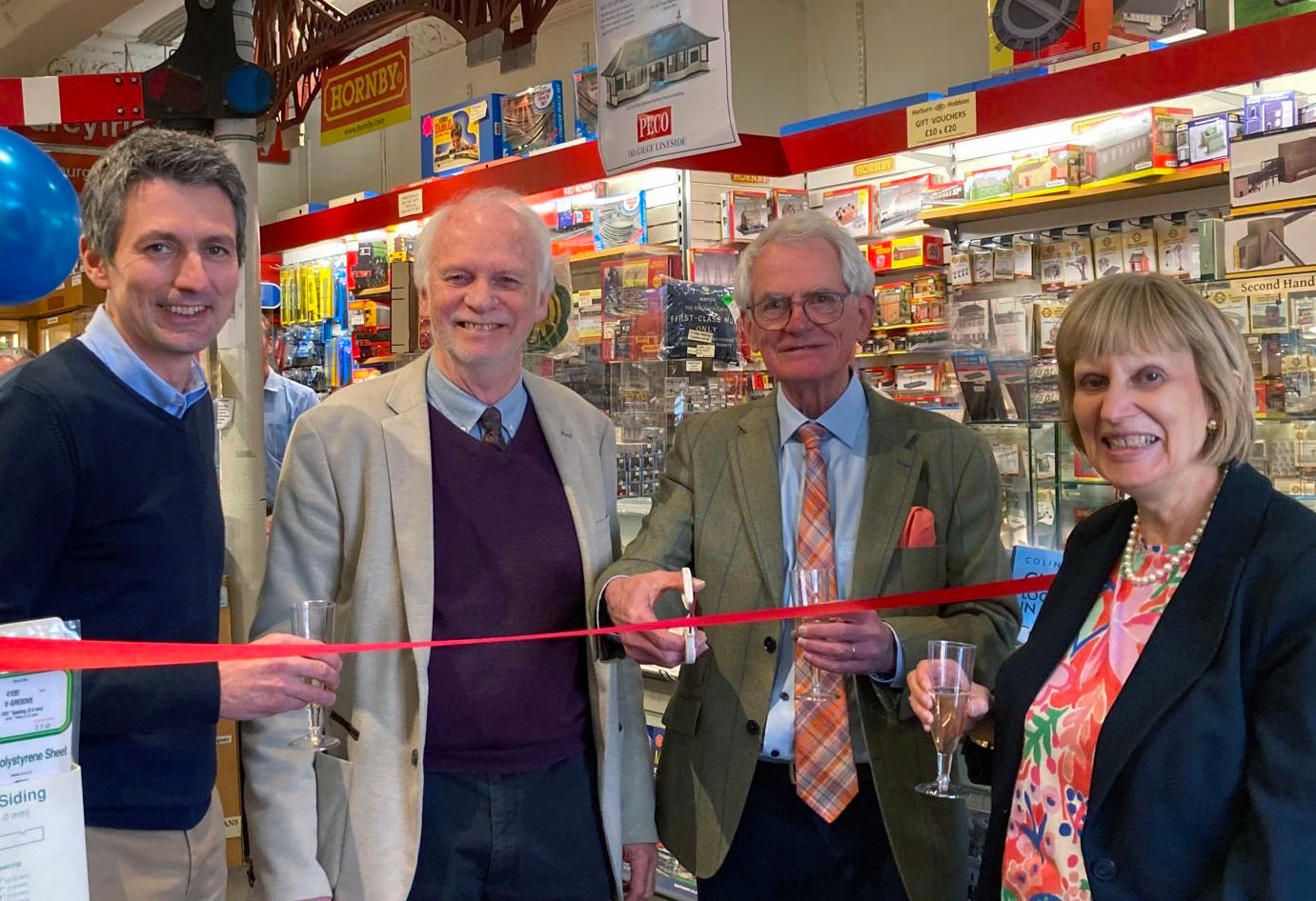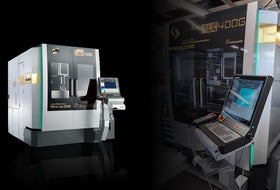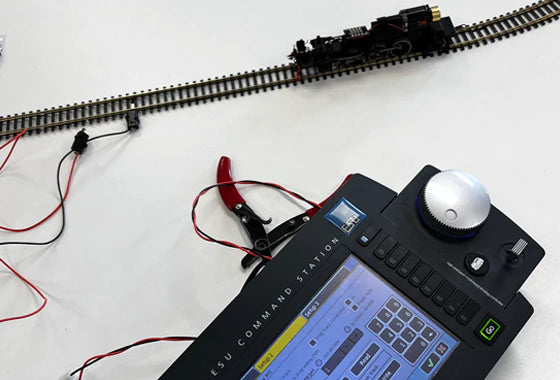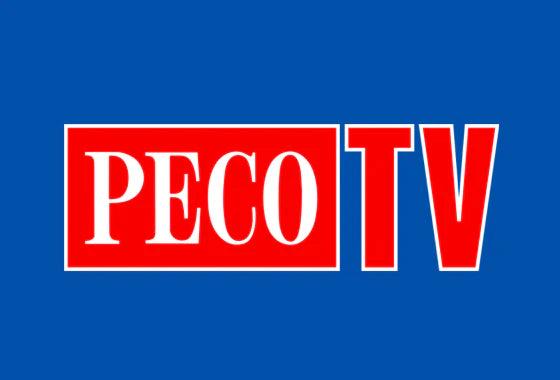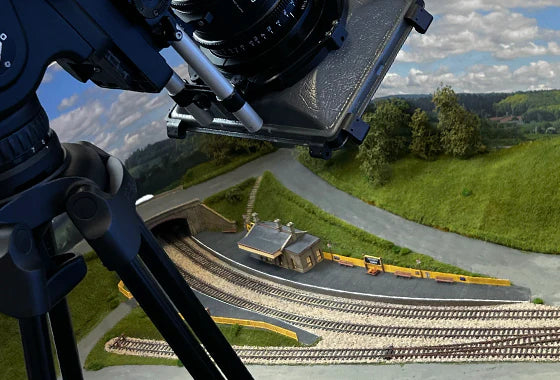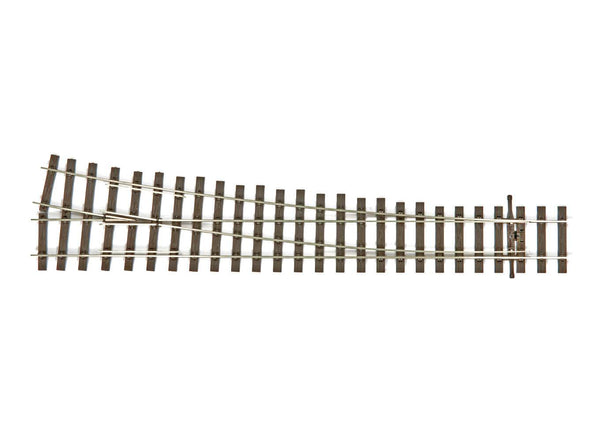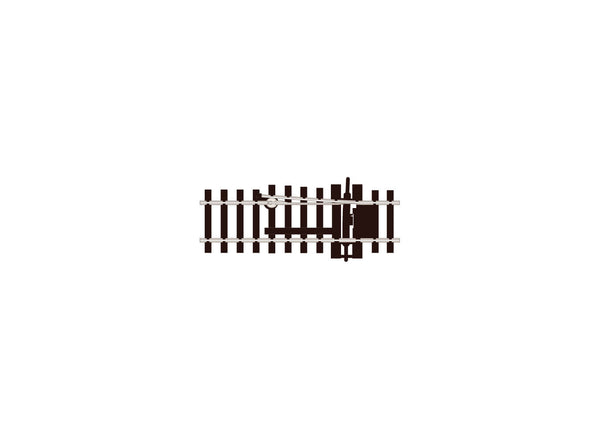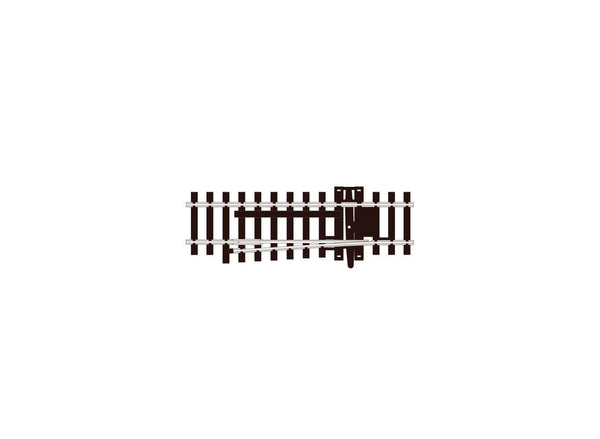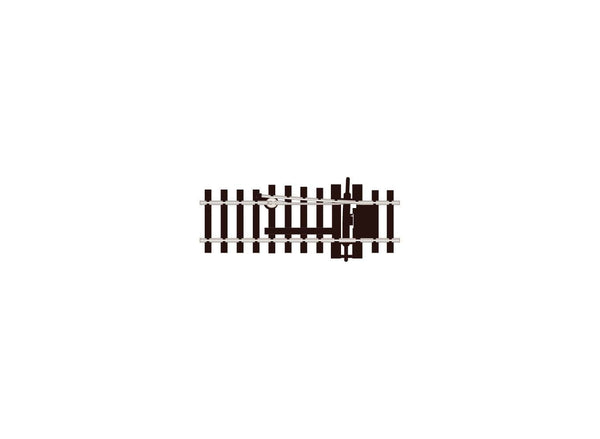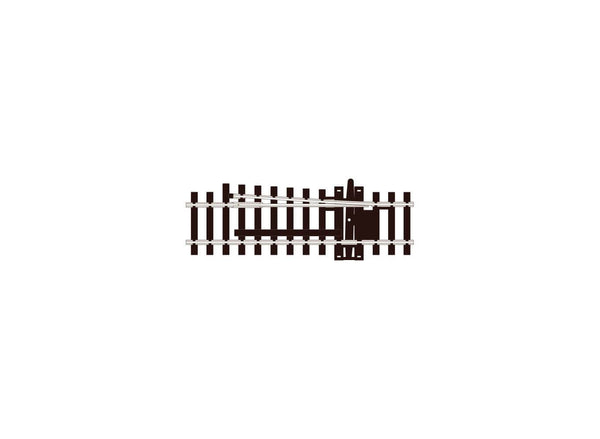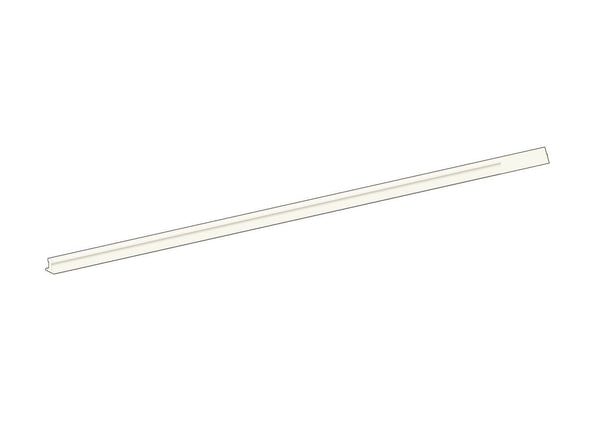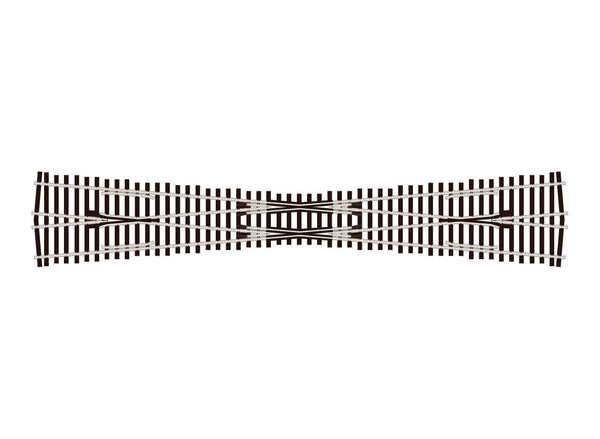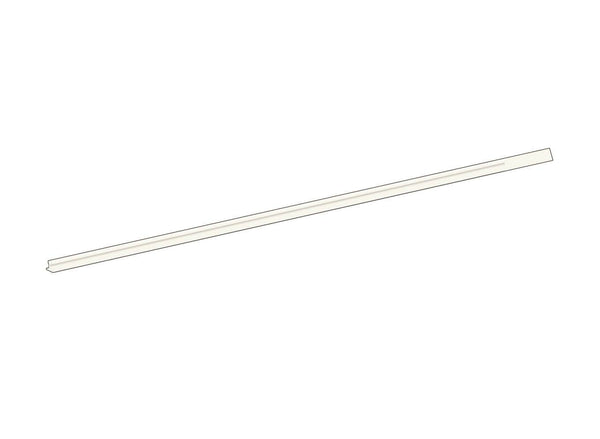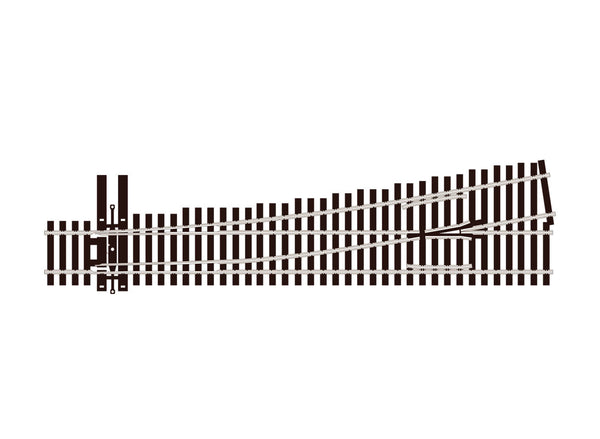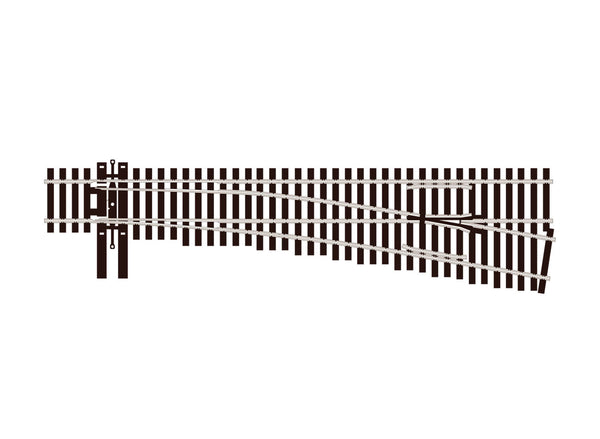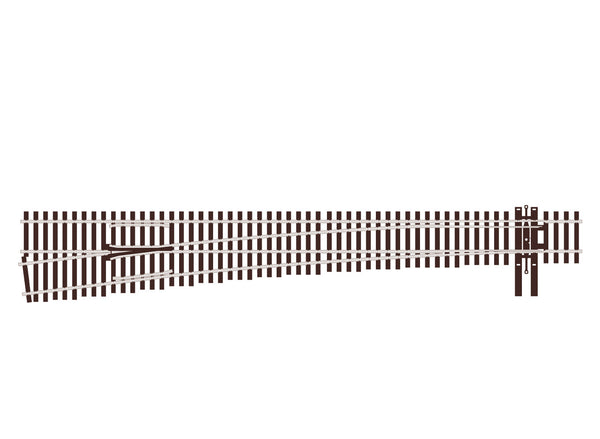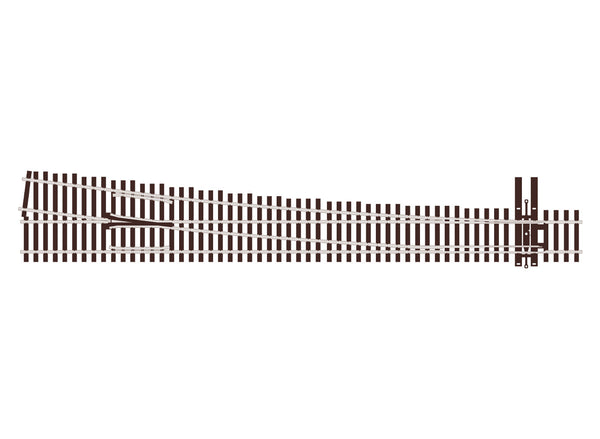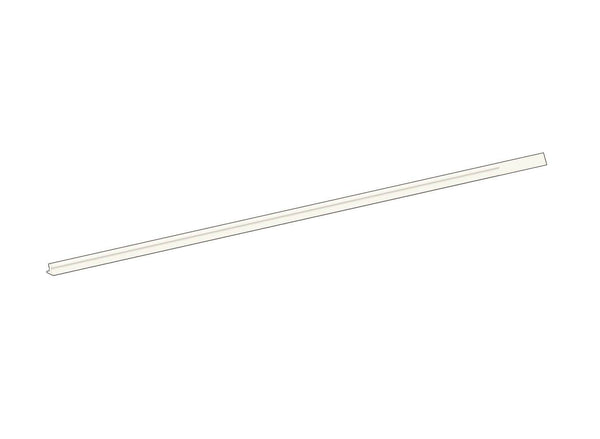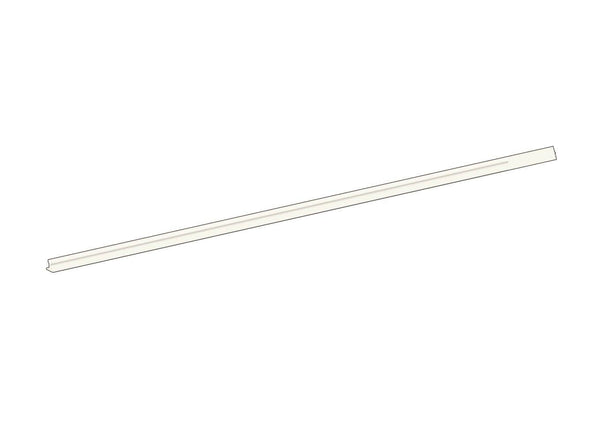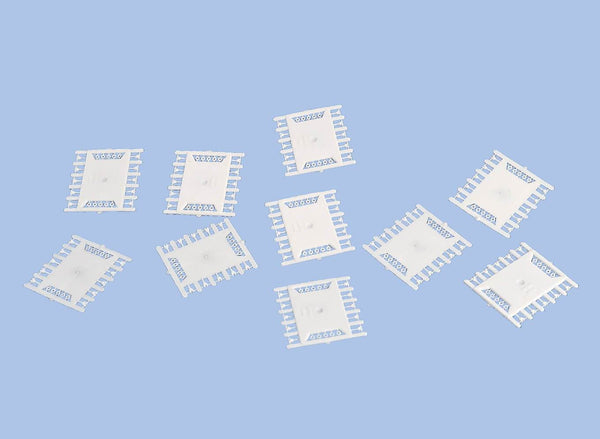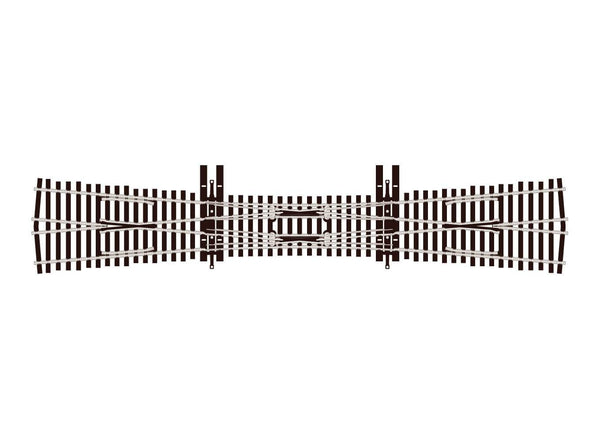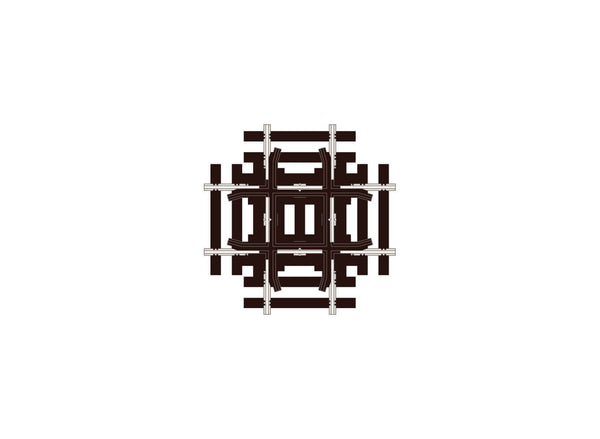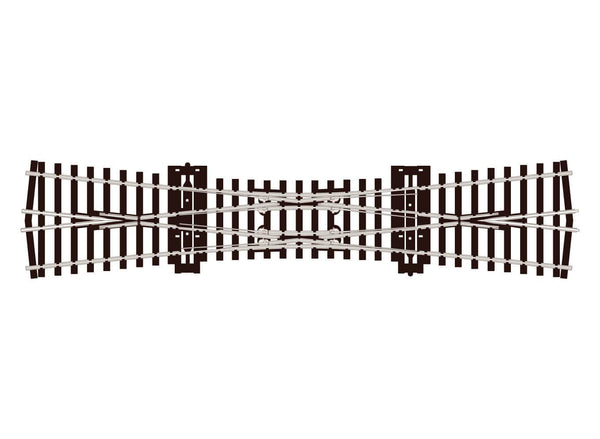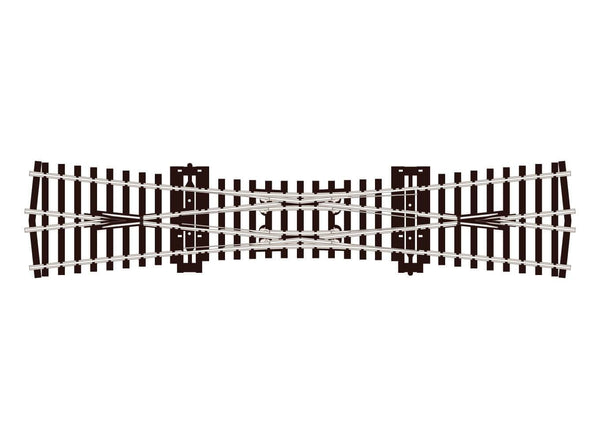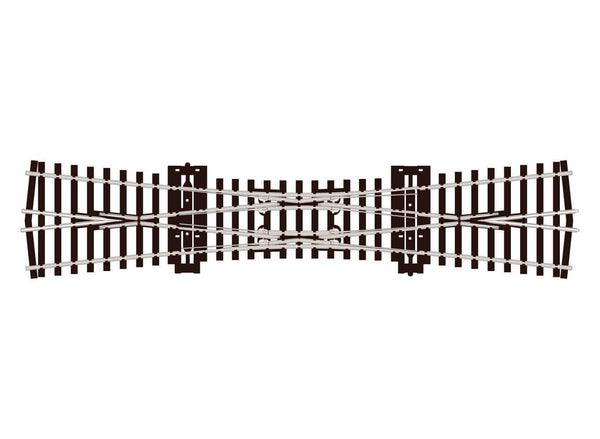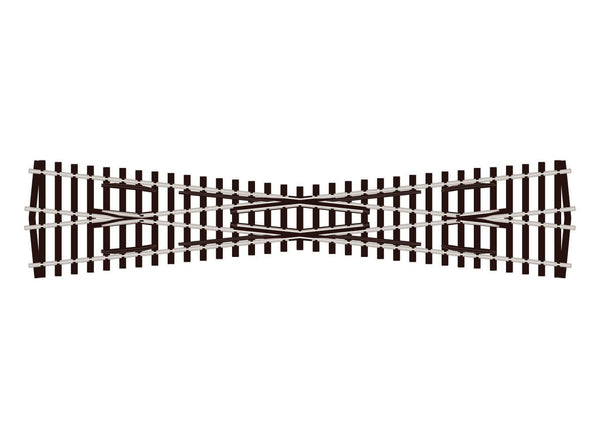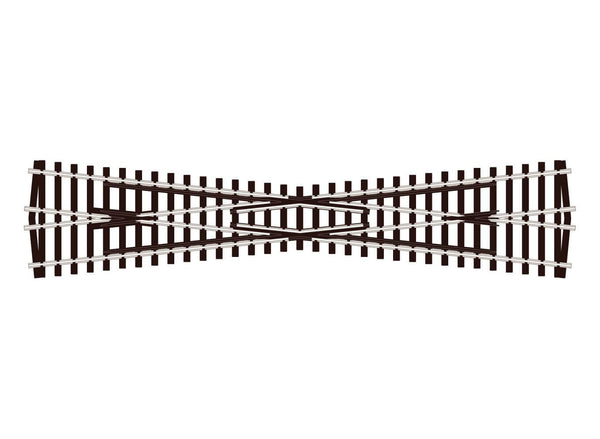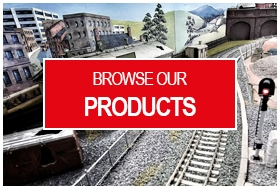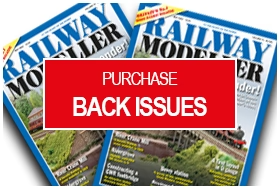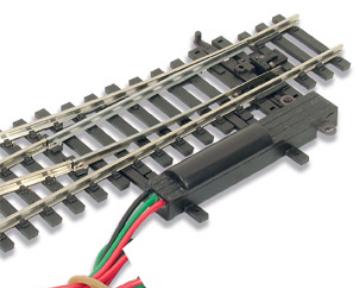BROWSE PECO PRODUCTS
Browse through our complete product portfolio.
192 Products Found
Bullhead OO Gauge RH Turnout - Large Radius
Bullhead track has been in use on the railways since the earliest times, and is still very much in evidence today. These superb turnouts give an authentic 00 scale look to your layout, and feature metal check rails and prototypical machined turnout blades. Another feature of these turnouts is that both routes remain electrically live, making them ideal for DCC operation. They are constructed to our new versatile Unifrog design which can be operated, powered and switched like an Electrofrog or left unpowered if preferred.
Peco Streamline Code 75 track meets the standards of enthusiasts who prefer to run trains on scale height rail. Today most manufacturers' wheels are suitable for use on Code 75 track but some vintage models may have flanges which are too deep to clear the rail fixings. Code 75 can be easily combined with code 100 track by using the SL-113 Transition Track.
Bullhead OO Gauge Slip - Double
Bullhead track has been in use on the railways since the earliest times, and is still very much in evidence today. These superb turnouts give an authentic 00 scale look to your layout, and feature metal check rails and prototypical machined turnout blades.
Another feature of these turnouts is that both routes remain electrically live, making them ideal for DCC operation. They are constructed to our new versatile Unifrog design which can be operated, powered and switched like an Electrofrog or left unpowered if preferred.
Peco Streamline Code 75 track meets the standards of enthusiasts who prefer to run trains on scale height rail. Today most manufacturers' wheels are suitable for use on Code 75 track but some vintage models may have flanges which are too deep to clear the rail fixings. Code 75 can be easily combined with code 100 track by using the SL-113 Transition Track.
Bullhead OO Gauge Slip - Single
Bullhead track has been in use on the railways since the earliest times, and is still very much in evidence today. These superb turnouts give an authentic 00 scale look to your layout, and feature metal check rails and prototypical machined turnout blades.
Another feature of these turnouts is that both routes remain electrically live, making them ideal for DCC operation. They are constructed to our new versatile Unifrog design which can be operated, powered and switched like an Electrofrog or left unpowered if preferred.
Peco Streamline Code 75 track meets the standards of enthusiasts who prefer to run trains on scale height rail. Today most manufacturers' wheels are suitable for use on Code 75 track but some vintage models may have flanges which are too deep to clear the rail fixings. Code 75 can be easily combined with code 100 track by using the SL-113 Transition Track.
Catch Turnout, Left Hand
The purpose of a Catch Turnout is to derail a vehicle before it rolls out of a siding or branch line on to a main line.
Peco Streamline Code 75 track meets the standards of enthusiasts who prefer to run trains on scale height rail. Today most manufacturers' wheels are suitable for use on Code 75 track but some vintage models may have flanges which are too deep to clear the rail fixings. Code 75 can be easily combined with code 100 track by using the SL-113 Transition Track.
The wide range of turnouts and crossings in this series includes every type, and the geometry of this range has been cleverly designed to make it easy to build convenient, complex and aesthetically pleasing formations using combinations of small, medium and large radius turnouts and crossings. Layout plans suggestions can be found in our publications ‘Track Plans for Layouts to Suit all Locations’ (Ref PM-202), ‘60 Plans for Small Railways’ (Ref no PB-3), and ‘Track Plans for Various Locations’ (Ref no PB-66).
Catch Turnout, Left Hand
The purpose of a Catch Turnout is to derail a vehicle before it rolls out of a siding or branch line on to a main line.
If you wish to mix wheel standards on your 00/H0 layout, this is the trackage to choose. Code 100 rail allows flange depths up to 1.6mm which means that both vintage and current stock will run happily together.
The wide range of turnouts and crossings in this series includes every type, and the geometry of this range has been cleverly designed to make it easy to build convenient, complex and aesthetically pleasing formations using combinations of small, medium and large radius turnouts and crossings. Layout plans suggestions can be found in our publications ‘Track Plans for Layouts to Suit all Locations’ (Ref PM-202), ‘60 Plans for Small Railways’ (Ref no PB-3), and ‘Track Plans for Various Locations’ (Ref no PB-66).
Catch Turnout, Right Hand
The purpose of a Catch Turnout is to derail a vehicle before it rolls out of a siding or branch line on to a main line.
Peco Streamline Code 75 track meets the standards of enthusiasts who prefer to run trains on scale height rail. Today most manufacturers' wheels are suitable for use on Code 75 track but some vintage models may have flanges which are too deep to clear the rail fixings. Code 75 can be easily combined with code 100 track by using the SL-113 Transition Track.
The wide range of turnouts and crossings in this series includes every type, and the geometry of this range has been cleverly designed to make it easy to build convenient, complex and aesthetically pleasing formations using combinations of small, medium and large radius turnouts and crossings. Layout plans suggestions can be found in our publications ‘Track Plans for Layouts to Suit all Locations’ (Ref PM-202), ‘60 Plans for Small Railways’ (Ref no PB-3), and ‘Track Plans for Various Locations’ (Ref no PB-66).
Catch Turnout, Right Hand
The purpose of a Catch Turnout is to derail a vehicle before it rolls out of a siding or branch line on to a main line.
If you wish to mix wheel standards on your 00/H0 layout, this is the trackage to choose. Code 100 rail allows flange depths up to 1.6mm which means that both vintage and current stock will run happily together.
The wide range of turnouts and crossings in this series includes every type, and the geometry of this range has been cleverly designed to make it easy to build convenient, complex and aesthetically pleasing formations using combinations of small, medium and large radius turnouts and crossings. Layout plans suggestions can be found in our publications ‘Track Plans for Layouts to Suit all Locations’ (Ref PM-202), ‘60 Plans for Small Railways’ (Ref no PB-3), and ‘Track Plans for Various Locations’ (Ref no PB-66).
Code 55, Diamond Crossing, Unifrog
This Long Crossing features our new versatile Unifrog design which can be operated, powered and switched like an Electrofrog or left unpowered if preferred.
83 Line items are realistic models of North American railroad track, with Code 83 nickel silver rail. Scaled from A.R.E.A. drawings and NMRA compliant, Code 83 features authentic tie sizes and spacing, the standard American number system for frog geometry, plus a very fine representation of traditional rail spike fixings.
Code 70, No.6 Turnout Left Hand, Unifrog
Whilst our HO Code 83 track is perfect for modelling American mainlines, this new Code 70 track is just right for secondary lines, lightly-used branches, sidings, etc. Indeed, it will be perfect for modelling the early-to-mid 20th century railroading era when lighter rail was more commonly used. Featuring accurate rail spike detail, correctly proportioned ties (sleepers) and nickel silver rail, this new flexible track has been produced to the same high standard that modellers have come to expect from PECO and confirms to the specifications laid down by the NMRA..
Code 70, No.6 Turnout Right Hand, Unifrog
Whilst our HO Code 83 track is perfect for modelling American mainlines, this new Code 70 track is just right for secondary lines, lightly-used branches, sidings, etc. Indeed, it will be perfect for modelling the early-to-mid 20th century railroading era when lighter rail was more commonly used. Featuring accurate rail spike detail, correctly proportioned ties (sleepers) and nickel silver rail, this new flexible track has been produced to the same high standard that modellers have come to expect from PECO and confirms to the specifications laid down by the NMRA..
Code 70, No.8, Left Hand Turnout, Unifrog
Whilst our HO Code 83 track is perfect for modelling American mainlines, this new Code 70 track is just right for secondary lines, lightly-used branches, sidings, etc. Indeed, it will be perfect for modelling the early-to-mid 20th century railroading era when lighter rail was more commonly used. Featuring accurate rail spike detail, correctly proportioned ties (sleepers) and nickel silver rail, this new flexible track has been produced to the same high standard that modellers have come to expect from PECO and confirms to the specifications laid down by the NMRA..
Code 70, No.8, Right Hand Turnout, Unifrog
Whilst our HO Code 83 track is perfect for modelling American mainlines, this new Code 70 track is just right for secondary lines, lightly-used branches, sidings, etc. Indeed, it will be perfect for modelling the early-to-mid 20th century railroading era when lighter rail was more commonly used. Featuring accurate rail spike detail, correctly proportioned ties (sleepers) and nickel silver rail, this new flexible track has been produced to the same high standard that modellers have come to expect from PECO and confirms to the specifications laid down by the NMRA..
Code 83 Flat Bottom Rail
6 914mm lengths of Code 83 Flat Bottom Rail for track and turnout construction.
Conductor Rail Chairs
For adding 3rd and 4th Conductor rails to existing track as found on Southern, Merseyside and London Transport systems, for example. Use IL-1 Code 60 rail with these chairs
Crossing, #6 Radius, Double Slip
Double slips can save valuable space at station approaches, junctions etc.
83 Line items are realistic models of North American railroad track, with Code 83 nickel silver rail. Scaled from A.R.E.A. drawings and NMRA compliant, Code 83 features authentic tie sizes and spacing, the standard American number system for frog geometry, plus a very fine representation of traditional rail spike fixings.
This double slip features our new versatile Unifrog design which can be operated, powered and switched like an Electrofrog or left unpowered if preferred.
Crossing, 90 Degrees
83 Line items are realistic models of North American railroad track, with Code 83 nickel silver rail. Scaled from A.R.E.A. drawings and NMRA compliant, Code 83 features authentic tie sizes and spacing, the standard American number system for frog geometry, plus a very fine representation of traditional rail spike fixings.
Crossing, Double Slip
Double slips can save valuable space at station approaches, junctions etc.
Peco Streamline Code 75 track meets the standards of enthusiasts who prefer to run trains on scale height rail. Today most manufacturers' wheels are suitable for use on Code 75 track but some vintage models may have flanges which are too deep to clear the rail fixings. Code 75 can be easily combined with code 100 track by using the SL-113 Transition Track.
The wide range of turnouts and crossings in this series includes every type, and the geometry of this range has been cleverly designed to make it easy to build convenient, complex and aesthetically pleasing formations using combinations of small, medium and large radius turnouts and crossings. Layout plans suggestions can be found in our publications ‘Track Plans for Layouts to Suit all Locations’ (Ref PM-202), ‘60 Plans for Small Railways’ (Ref no PB-3), and ‘Track Plans for Various Locations’ (Ref no PB-66).
Crossing, Double Slip
Double slips can save valuable space at station approaches, junctions etc.
If you wish to mix wheel standards on your 00/H0 layout, this is the trackage to choose. Code 100 rail allows flange depths up to 1.6mm which means that both vintage and current stock will run happily together.
The wide range of turnouts and crossings in this series includes every type, and the geometry of this range has been cleverly designed to make it easy to build convenient, complex and aesthetically pleasing formations using combinations of small, medium and large radius turnouts and crossings. Layout plans suggestions can be found in our publications ‘Track Plans for Layouts to Suit all Locations’ (Ref PM-202), ‘60 Plans for Small Railways’ (Ref no PB-3), and ‘Track Plans for Various Locations’ (Ref no PB-66).
Crossing, Double Slip
Double slips can save valuable space at station approaches, junctions etc.
Peco Streamline Code 75 track meets the standards of enthusiasts who prefer to run trains on scale height rail. Today most manufacturers' wheels are suitable for use on Code 75 track but some vintage models may have flanges which are too deep to clear the rail fixings. Code 75 can be easily combined with code 100 track by using the SL-113 Transition Track.
The wide range of turnouts and crossings in this series includes every type, and the geometry of this range has been cleverly designed to make it easy to build convenient, complex and aesthetically pleasing formations using combinations of small, medium and large radius turnouts and crossings. Layout plans suggestions can be found in our publications ‘Track Plans for Layouts to Suit all Locations’ (Ref PM-202), ‘60 Plans for Small Railways’ (Ref no PB-3), and ‘Track Plans for Various Locations’ (Ref no PB-66).
For more details on Electrofrog turnouts, see our Wiring the Layout publications Nos 4 and 21.
Crossing, Long
This unit can be used with small, medium, or large radius turnouts to form a double junction.
Peco Streamline Code 75 track meets the standards of enthusiasts who prefer to run trains on scale height rail. Today most manufacturers' wheels are suitable for use on Code 75 track but some vintage models may have flanges which are too deep to clear the rail fixings. Code 75 can be easily combined with code 100 track by using the SL-113 Transition Track.
The wide range of turnouts and crossings in this series includes every type, and the geometry of this range has been cleverly designed to make it easy to build convenient, complex and aesthetically pleasing formations using combinations of small, medium and large radius turnouts and crossings. Layout plans suggestions can be found in our publications ‘Track Plans for Layouts to Suit all Locations’ (Ref PM-202), ‘60 Plans for Small Railways’ (Ref no PB-3), and ‘Track Plans for Various Locations’ (Ref no PB-66).
Crossing, Long
This unit can be used with small, medium, or large radius turnouts to form a double junction.
If you wish to mix wheel standards on your 00/H0 layout, this is the trackage to choose. Code 100 rail allows flange depths up to 1.6mm which means that both vintage and current stock will run happily together.
The wide range of turnouts and crossings in this series includes every type, and the geometry of this range has been cleverly designed to make it easy to build convenient, complex and aesthetically pleasing formations using combinations of small, medium and large radius turnouts and crossings. Layout plans suggestions can be found in our publications ‘Track Plans for Layouts to Suit all Locations’ (Ref PM-202), ‘60 Plans for Small Railways’ (Ref no PB-3), and ‘Track Plans for Various Locations’ (Ref no PB-66).
